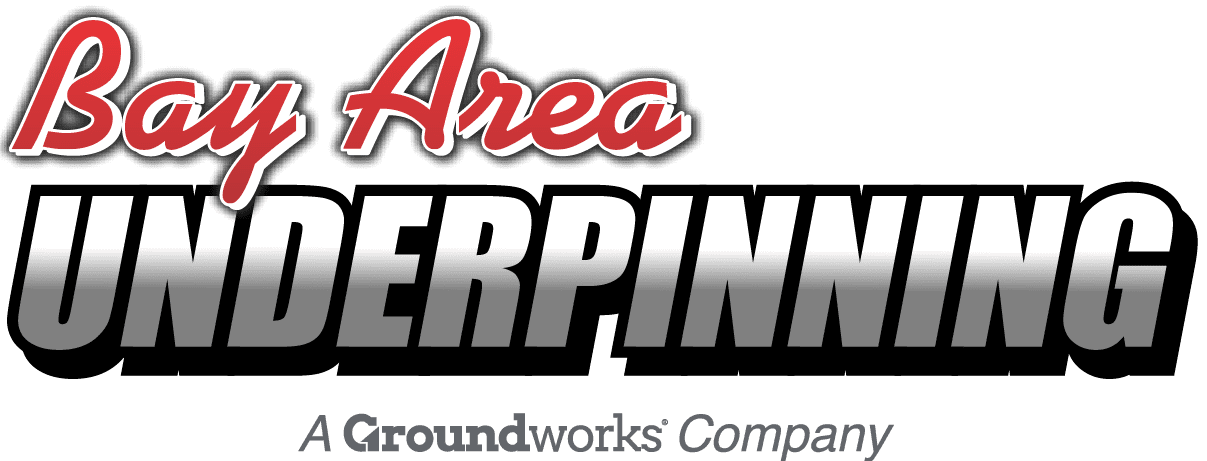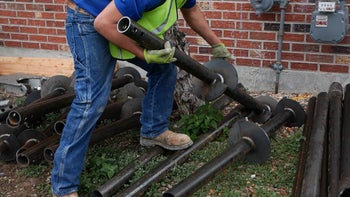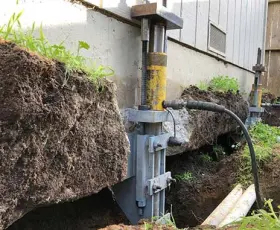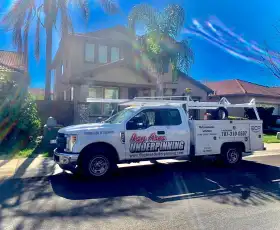Everything You Need To Know About Foundation Stabilization
Table of Contents
1. How Do I Know If I Need Foundation Stabilization?
2. Common Signs Of Foundation Problems
3. Types Of Foundation Stabilization
How Do I Know If I Need Foundation Stabilization?
Foundation stabilization is used to strengthen a foundation that has become weak and destabilized over time. Foundation destabilization is often caused by soil-related conditions around your home. Here are the most common causes of foundation destabilization:
- Soil type – Since most of California’s soil has a lot of clay, the ground absorbs moisture and swells during the rainy season and then shrinks during hot, dry conditions. This swelling-shrinking cycle causes movement in the soil, which can, over time, lead to foundation trouble.
- Poorly compacted soil – Soil needs to be adequately compacted before anything is built on top of it. If this isn’t done, the structure will settle unevenly into the soil, and this can cause problems with the foundation.
- Soil erosion – Leaky plumbing, poor drainage, and over-watering can cause soil erosion under the foundation.
- Soil shrinkage – Soil that isn’t getting enough water will shrink as it dries up. This shrinkage causes voids to form in the ground. These empty spaces in the ground create a lack of support for the concrete, leading to foundation settlement and sinking.
- Soil saturation – The more rain an area gets, the more water the soil around your home will absorb. Saturated soil swells and creates pressure in the ground, pushing the foundation out of place and causing the entire structure to shift and move.
- Transpiration – Maturing tree roots tend to dehydrate the soil, soaking up moisture under the foundation. This leads to soil shrinkage and settlement issues.
- Poor construction – New construction built on poor soil or debris can cause settlement issues over time.
- Foundation deterioration – Over time, all concrete starts to deteriorate. If the foundation is exposed to water in excessive amounts, this can speed up deterioration. As the concrete deteriorates, the foundation will lose stability.
- Poor grading – A poorly graded yards direct water toward the home. With a good drainage system, water is directed away from the foundation.
- Clogged gutters – Gutters filled with leaves and debris block the flow of water and send it spilling over the side of your home and into the soil next to the foundation. Clean your gutters regularly.
- Homes built at the bottom of hills – This isn’t the best place to build a foundation. These homes could experience drainage issues – because water is draining toward the foundation – and, as a result, structural damage.
- Growing trees and shrubs – If there are large shrubs or trees too close to your home’s foundation, their roots could push on the concrete. This leads to foundation shifting and crack formation.
Do any of these situations sound familiar? If you answered yes, contact Bay Area Underpinning right away to avoid settlement.
Common Signs Of Foundation Problems
If you suspect foundation problems, look for the following warning signs in and around your home:
- Sloping or uneven floors
- Gaps between the wall and the ceiling and/or floor
- Sticking or misaligned doors and windows
- Leaning, rotating, bowing, bulging walls
- Cracked moldings
- Stair step cracks in brick or masonry
If you notice any of these foundation issues, give us a call to assess the situation. We’ll apply the latest foundation repair methods to support, lift and stabilize your foundation in California.
For more information, see Foundation Settlement.
Types Of Foundation Stabilization
Foundation stabilization contractors use various methods to stabilize California foundations. Many of these methods involve installing underpinning devices to lift the foundation and give it the support that it lacks. There are a lot of different underpinning devices to fit specific situations, but they all have a few things in common. First, all these devices are installed beneath the sinking or shifting foundation. Second, they all work a bit like stilts installed underground to lift and provide stability for the settling foundation.
For more information see, Underpinning A House: What Every Homeowner Needs To Know.
Our team offers several different kinds of piers to underpin your home, no matter what type of foundation you have. One common type of pier is a galvanized steel push pier (also known as a resistance pier). This push pier is excellent for deep foundations that have started to settle due to soil movement. They use a hydraulic lift system to elevate the foundation once installed underground in load bearing soils or bedrock.
We also offer helical piers , which work great to lift sagging foundations and provide long-term stability. These piers are screwed into the ground for extra strength, and are typically used for larger foundation projects.
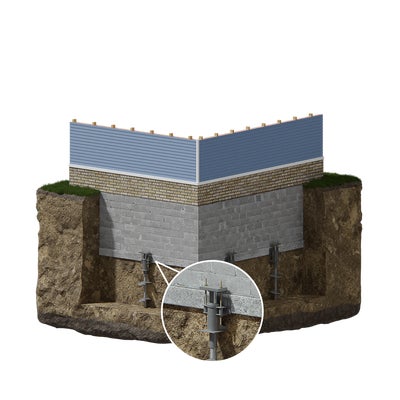
Finally, in cases where a lift is performed we will perform polyurethane injections to stabilize concrete slabs and foundations in the Bay Area. This method utilizes an expansive polyurethane material injected into the ground through small holes drilled in the slab. The material expands, filling voids beneath the concrete to stabilize the surrounding soil and pushing upward on the slab to level it out, making earth to slab contact again.
If you have a settling or sinking foundation in need of foundation stabilization, give Bay Area Underpinning a call. We use the latest products on the market to lift, support, and stabilize your foundation for many years to come. Call us to get a free estimate.
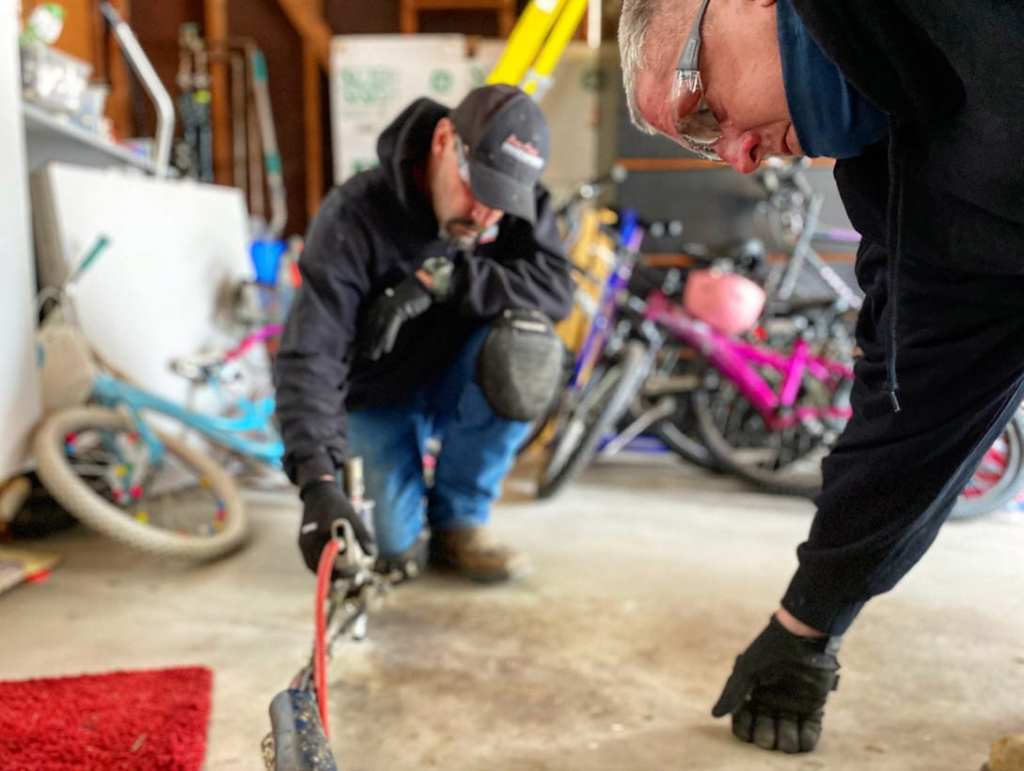
More Resources
Publish Date:
Last Modified Date:
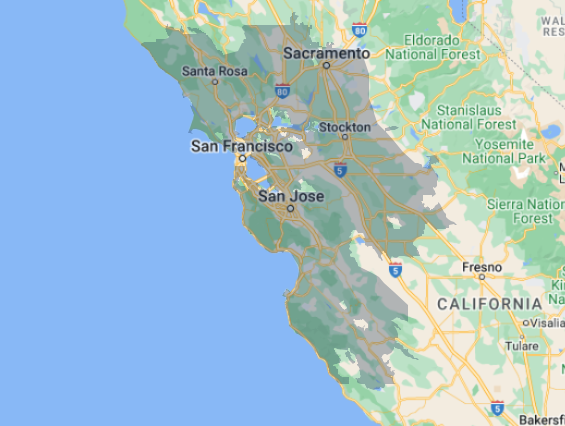
Our Locations
2333 Courage Dr. Suite C
Fairfield, CA 94533
1161 N Fair Oaks Ave
Sunnyvale, CA 94089
